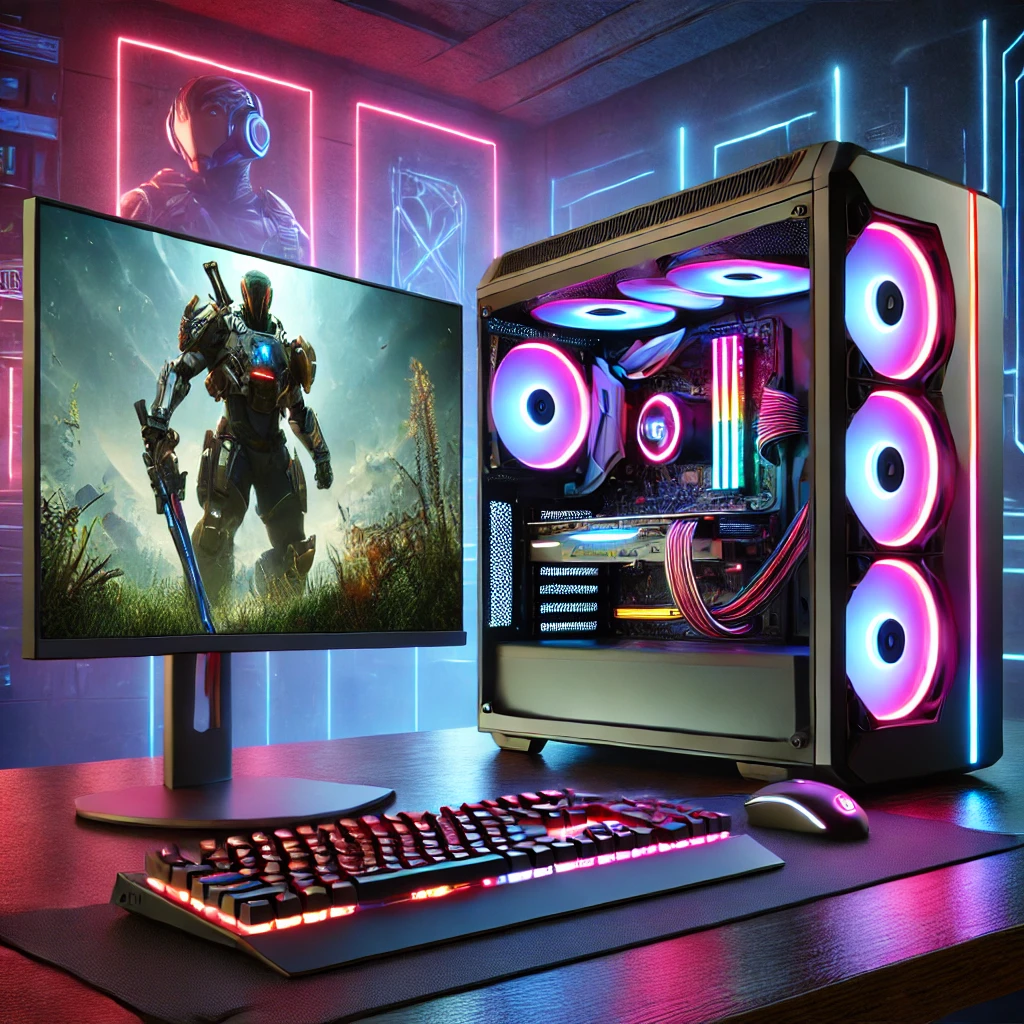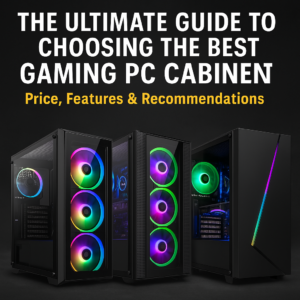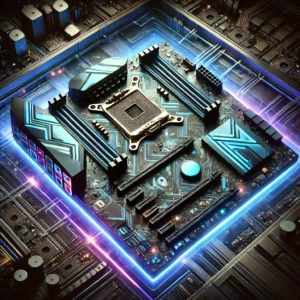Essential Components for Building a Gaming PC

Essential Components for Building a Gaming PC
The creation of a gaming PC demands precise selection among its parts for achieving peak performance while maintaining extended lifespan and energy effectiveness. Sanctioned components work together to determine the complete gaming reaction. The following article details all critical elements needed to construct a high-performance gaming personal computer system.
-
Central Processing Unit (CPU)
The CPU functions as the central processing unit while being known as the processor in the computer terminology. The CPU executes all computational tasks needed to operate games together with applications. The selection of a gaming CPU depends on four essential criteria.
The optimal game performance comes from processors having 6 to 12 cores together with multiple threads.
Better speed performance is achieved through higher clock speed specifications. You should choose CPUs that come with 4.0 GHz or higher boost frequency.
The ‘K’ series from Intel and Ryzen ‘X’ series from AMD include support for overclocking that delivers additional performance enhancements to users.
Compatibility: Ensure the CPU is compatible with the motherboard’s socket type.
Two leading groups of gaming CPUs exist as Intel Core i5/i7/i9 together with AMD Ryzen 5/7/9 series.
-
Graphics Processing Unit (GPU)
Among all components used in gaming equipment the GPU stands as the most indispensable part. The GPU serves as the component which generates visuals including pictures and both video footages along with animated content.
Modern games require at least 6GB of VRAM as a minimum yet playing at high resolution benefits from having at least 8GB of VRAM.g.
-
A modern GPU provides real-time ray tracing capabilities through its support for graphics processing ray tracing.
Users need to select GPUs which integrate effective cooling solutions to stop system overheating.
Your choice of GPU should match the games you play within this performance level. The most popular choices in the market include Radeon RX 6000/7000 series from AMD and RTX 30/40 series from NVIDIA.
-
Motherboard
A motherboard functions as a core connector of all system elements while maintaining uninterrupted communication among these components.
A motherboard must feature a chipset which corresponds to your processor model (Intel Z690 can work with 12th Gen Intel CPUs and AMD B550/X570 support Ryzen processors).
Check whether the PC has adequate PCIe slots that support multiple GPU installs along with SSD and networking card additions.
The choice should include components with USB 3.2 and Wi-Fi along with Bluetooth connectivity and rapid LAN ports.
The system must support the memory type, speed and its maximum capacity.
-
Random Access Memory (RAM)
A computer requires RAM to deliver efficient gameplay alongside the capability to run multiple tasks at once.
For gaming performance developers should equip their computers with at least 16GB of storage yet serious gamers will achieve superior results with 32GB.
Faster performance occurs when you use RAM with higher frequencies exceeding 3200MHz.
A gaming system achieves better bandwidth and performance through dual-channel memory implementation.
A computer system achieves better performance through reduced latency which stems from CAS Latency (CL) measurements.
-
Storage (SSD & HDD)
Crushed gameplay performance gets accelerated through fast internal data storage.
The NVMe SSD proves to deliver quicker speeds than SATA SSD systems. The 1TB NVMe SSD stands as the best storage option for gaming purposes.
The Hard Disk Drive (HDD) works effectively for game file storage alongside multimedia content when you use a 2TB capacity HDD.
Hybrid Setup: Many gamers use an SSD for the OS and frequently played games while keeping an HDD for other storage needs.
System performance improves when read and write speeds are elevated because this cuts down application and gaming loading intervals.
-
Power Supply Unit (PSU)
The reliable power supply unit provides consistent power delivery for all computer components.
You should determine the power requirements by evaluating CPU along with GPU and peripherals (a gaming PC requires between 650W to 850W).
Energy efficiency depends on choosing a PSU which holds an 80 PLUS Bronze Gold or Platinum rating.
A modular power supply design brings advantages of improved cable arrangement throughout the system setup.
Protection Features: Ensure the PSU has overvoltage, undervoltage, and short-circuit protection.
-
Cooling System
System reliability depends on effective cooling since it reduces heat-related problems.
Air Cooling exists as an affordable solution that delivers suitable performance for typical builds (Noctua NH-D15 is an example so is Cooler Master Hyper 212).
All-in-One refrigeration (AIO) coolers and customized loops provide higher thermal efficiency particularly when users operate their systems at an overclocking state.
Thermal Paste: Applying high-quality thermal paste improves heat dissipation.
-
PC Case
The chosen case shape influences appearance together with air circulation patterns and component relationship limitations.
An ATX case matches with ATX motherboards along with Micro-ATX and Mini-ITX motherboards.
The selection of cases requires one to prefer those that maintain proper airflow for cooling.
Large cases provide better opportunities to handle cables properly..
RGB & Aesthetics: Some cases come with RGB lighting for an enhanced gaming setup.
-
Monitor
Users will have an improved gaming experience through the use of high-quality monitor displays.
Buyers should consider 1080p resolution in budget setups and mid-range should get 1440p and high-end setups should obtain 4K resolution.
The refresh rate should be set at 144Hz or above because it enables smoother gameplay.
Response Time requires a lower duration between 1ms to 5ms to decrease motion blur.
Screen tearing prevention comes through G-Sync by NVIDIA and FreeSync from AMD as Adaptive Sync features
10.Accessories (Keyboard, Mouse, Headset, Game Controller)
The mechanical keyboard offers responsive keystrokes together with extended longevity due to its design.
A gaming mouse reaches high precision through both accurate DPI settings and customizable button functionality.
In-game audio is strengthened through the use of surround sound through a headset.
A game controller gives players the best experience when they play racing games and fighting games.
Large yet high-quality mouse pads give players superior tracking ability combined with better comfort during gameplay.
-
Operating System & Software
Windows or Linux: Windows is the most popular choice for gaming.
The maintenance of correct drivers for both GPU and motherboard components should be performed regularly.

